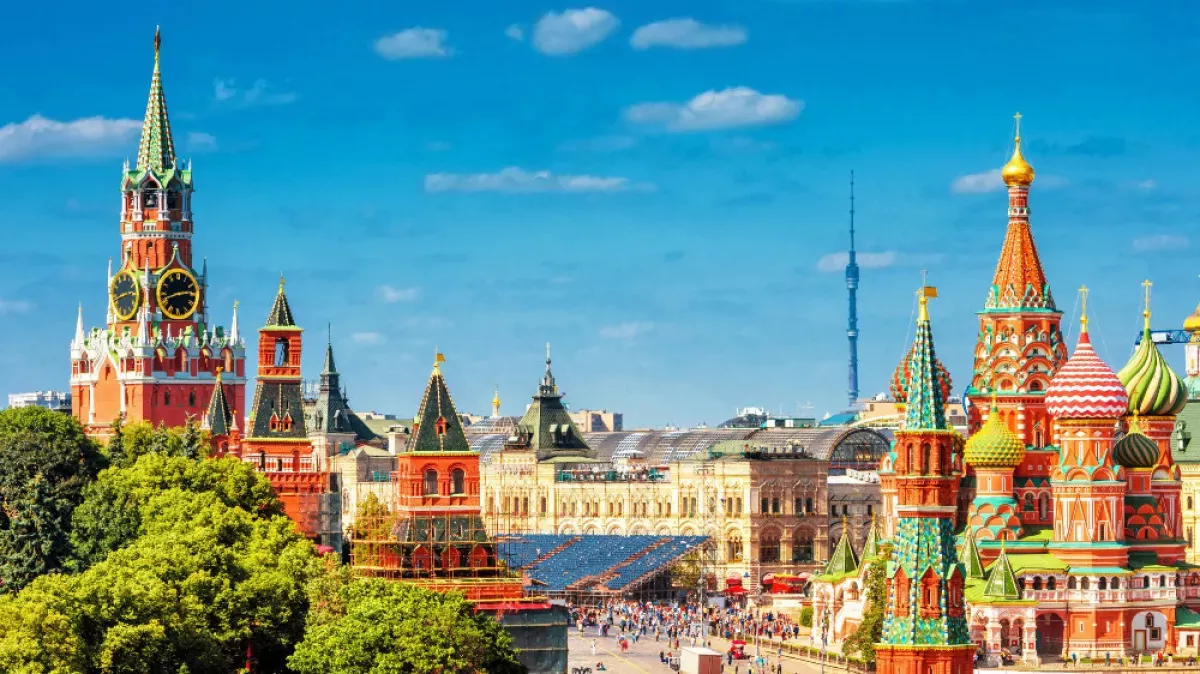Moscow is the capital and largest city of Russia, located on the Moskva River in Central Russia. It boasts a population exceeding 13 million within the city limits and over 21.5 million in its metropolitan area. Covering a vast area of 2,511 square kilometers, Moscow is one of the world's largest cities and the most populous city entirely in Europe. It is also the largest urban and metropolitan area in Europe, as well as the largest city by land area on the European continent.
1902: Savyolovsky Rail Terminal built
In 1902, the suburban Savyolovsky Rail Terminal was built in Moscow.
1903: Moskvoretskaya water supply completed
In 1903, the Moskvoretskaya water supply was completed in Moscow.
1903: Formation of Moskovskaya Okruzhnaya Zheleznaya Doroga
Since 1903, the Moskovskaya Okruzhnaya Zheleznaya Doroga formed a ring around the now-downtown Moscow.
January 1905: First Mayor of Moscow
In January 1905, Alexander Adrianov became Moscow's first official mayor.
1913: Voyentorg department store landmark
The landmark 1913 Voyentorg department store was razed and reconstructed, with the inevitable loss of historical value.
1915: Population of Moscow
By 1915, Moscow's population had grown tenfold since 1750, reaching 1.8 million during the Russian Empire.
November 1917: Bolsheviks uprising
In November 1917, Moscow's Bolsheviks began their uprising upon learning of the uprising in Petrograd. By November 15, 1917, Soviet power was established in Moscow after heavy fighting.
1917: Moscow called the "city of 40 times 40 churches"
Prior to 1917, Moscow was called the "city of 40 times 40 churches".
March 1918: Capital moved back to Moscow
On March 12, 1918, Vladimir Lenin moved the capital back to Moscow, fearing invasion, and the Kremlin became the seat of power as the political center of the new state.
1918: Capital moved back to Moscow
In 1918, Vladimir Lenin, fearing invasion, moved the capital back to Moscow, and the Kremlin became the seat of power for the new state.
1919: Construction of Shukhov Tower
Construction of the Shukhov Tower began in 1919.
1920: Foundation of Bauman Garden
Bauman Garden was officially founded in 1920.
1922: Renaming of Bauman Garden
In 1922, Bauman Garden was renamed after the bolshevik Nikolay Bauman.
1922: Completion of Shukhov Tower
In 1922, the Shukhov Tower was completed as a transmission tower for a Russian broadcasting company.
1928: Foundation of Gorky Park
In 1928, Gorky Park (officially the Central Park of Culture and Rest named after Maxim Gorky) was founded.
1929: Anti-religious campaign launched
In 1929, a new anti-religious campaign was launched in Moscow, coinciding with the collectivization of peasants.
1930: Moskva hotel landmark
The landmark 1930 Moskva hotel was razed and reconstructed, with the inevitable loss of historical value.
1931: Creation of Izmaylovsky Park
In 1931, Izmaylovsky Park was created as one of the largest urban parks in the world.
1932: Peak destruction of churches
Around 1932, the destruction of churches in Moscow peaked amid the ongoing anti-religious campaign.
November 1933: Opening of Moscow Trolleybus System
In November 1933, the Moscow trolleybus system opened, becoming the world's 6th oldest operating trolleybus system.
1935: Greenbelt Built
In 1935, the greenbelt was built in Moscow.
1937: Suggestion to rename Moscow rejected
In 1937, letters were written to the Central Committee of the Communist Party of the Soviet Union to rename Moscow to "Stalindar" or "Stalinodar", but Stalin rejected this suggestion.
1937: Construction of North River Terminal
In 1937, the North River Terminal was built and is the main hub for long-range river routes.
January 1940: Lowest recorded temperature
In January 1940, the lowest temperature ever recorded in Moscow was −42.1 °C (−43.8 °F).
September 1941: German Army Group Centre stopped at the outskirts of Moscow
Between September 30, 1941, and January 7, 1942, the German Army Group Centre was stopped at the outskirts of Moscow and then driven off in the Battle of Moscow. Factories were evacuated, and the city was declared to be in a siege from October 20, 1941.
October 1941: Siege declared in Moscow
In October 1941, Moscow was declared to be in a siege, with factories evacuated and inhabitants building antitank defenses. The city was bombarded from the air.
January 1942: German Army Group Centre driven off
Between September 30, 1941, and January 7, 1942, the German Army Group Centre was driven off in the Battle of Moscow.
May 1944: Medal For the Defence of Moscow Instituted
On May 1, 1944, a medal "For the defence of Moscow" was instituted.
1945: Foundation of Tsytsin Main Botanical Garden
In 1945, the Tsytsin Main Botanical Garden of Academy of Sciences was founded, becoming the largest in Europe.
1947: Medal In memory of the 800th anniversary of Moscow instituted
In 1947, another medal "In memory of the 800th anniversary of Moscow" was instituted.
1953: Moscow State University moved
In 1953, Moscow State University moved to its campus on Sparrow Hills.
1953: Moscow hosted the EuroBasket
Moscow hosted the EuroBasket in 1953.
1958: City of Zelenograd built
In 1958, the city of Zelenograd was built 37 kilometers from the city center, along the Leningradskoye Shosse, and incorporated as one of Moscow's administrative okrugs.
1958: Foundation of Lilac Park
Lilac Park was founded in 1958 and has a permanent sculpture display and a large rosarium.
1959: Anti-religious campaign launched
In 1959, Nikita Khrushchev launched his anti-religious campaign, leading to the closure and demolition of several churches in Moscow.
1960: Moscow Ring Road becomes the city boundary
Since 1960, the Moscow Ring Road (MKAD) has served as Moscow's boundary.
1961: Moscow Ring Road (MKAD) opened
In 1961, the Moscow Ring Road (MKAD) was opened, featuring four lanes running 109 kilometers along the city borders.
May 1965: Moscow awarded title of Hero City
On May 8, 1965, Moscow was awarded the title of Hero City due to the 20th anniversary of the victory in World War II.
1965: Moscow hosted the EuroBasket
Moscow hosted the EuroBasket in 1965.
1967: Completion of the Ostankino Tower
In 1967, the Ostankino Tower was completed and became the highest free-standing land structure in the world.
1979: Restoration of metro station "Grand Designs"
In late 1979, the tradition of "Grand Designs" was restored to Moscow metro stations, decorating the stations as single-themed installations.
1980: Summer Olympic Games hosted by Moscow
In 1980, Moscow hosted the Summer Olympic Games, which were boycotted by the US and other Western countries due to the Soviet Union's invasion of Afghanistan in 1979.
1980: Moscow hosted the 1980 Summer Olympics
Moscow hosted the 1980 Summer Olympics.
1984: Newest Tram Line Built
In 1984, the newest tram line was built in Moscow.
1991: Coup attempt in Moscow
In 1991, Moscow was the scene of a coup attempt by conservative communists opposed to the liberal reforms of Mikhail Gorbachev.
1991: Average July temperature
The average July temperature from 1991 to 2020 is 19.7 °C (67.5 °F).
1991: USSR dissolved
When the USSR was dissolved in 1991, Moscow remained the capital of the Russian Federation. A market economy emerged, producing an explosion of Western-style retailing, services, architecture, and lifestyles.
1992: Planning of Moscow International Business Center
In 1992, the Moscow government began planning the Moscow International Business Center (MIBC).
1995: MKAD ring road widened
In 1995, the MKAD ring road was widened from the initial four to ten lanes.
2000: Average Sunshine Hours
Between 2004 and 2010, the average was between 1800 and 2000 hours with a tendency to more sunshine in summer months
2001: Extreme heat observed
During the summer of 2001, extreme heat was observed in Moscow.
December 2002: Bulvar Dmitriya Donskogo Metro Station Opened
In December 2002, Bulvar Dmitriya Donskogo became the first Moscow Metro station that opened beyond the limits of MKAD.
2002: Extreme heat observed
During the summer of 2002, extreme heat was observed in Moscow.
2003: Extreme heat observed
During the summer of 2003, extreme heat was observed in Moscow.
2003: Opening of Moscow International Performance Arts Center
In 2003, the Moscow International Performance Arts Center, also known as Moscow International House of Music, opened.
2003: Park Pobedy station completed
In 2003, the Park Pobedy station in the Moscow Metro was completed, featuring the longest escalators in Europe at 84 metres underground.
2004: Average Sunshine Hours
Between 2004 and 2010, the average was between 1800 and 2000 hours with a tendency to more sunshine in summer months
2004: Major heating reform launched
In 2004, a major reform was launched in Moscow to consolidate heat production and supply companies under the umbrella of MIPC.
2004: Opening of Moscow Metro Monorail Line
In 2004, the Moscow Metro opened a short monorail line (line 13) connecting Timiryazevskaya metro station and Ulitsa Sergeya Eisensteina.
2004: Third Ring Road Completed
In 2004, the Third Ring Road was completed in Moscow.
2005: Over 500 Olympic sports champions lived in the city by 2005
By 2005, over 500 Olympic sports champions lived in the city.
2005: Mosenergo reformed
In 2005, Mosenergo, Moscow's main source of heating, was reformed, with around ten subsidiaries separated from it, including the District Heating Network Company (MTK).
2005: Opening of Delovoi Tsentr Metro Station
In 2005, the Delovoi Tsentr metro station opened on the Filyovskaya Line.
2005: Completion of the Third Automobile Ring
In 2005, the Third Automobile Ring in Moscow was completed, forming another circular route in the city's radial-circle planning.
2006: Moscow named world's most expensive city
In 2006, Mercer Human Resources Consulting named Moscow the world's most expensive city for expatriate employees due to the stable Russian ruble and increasing housing prices.
2006: Cold temperatures
In 2006, frosts reaching −30.0 °C (−22.0 °F) were observed.
2006: Extension to Mezhdunarodnaya Station
In 2006, the Filyovskaya Line extended to the Mezhdunarodnaya station.
2007: Moscow ranked first as most expensive city
In 2007, Moscow was ranked as the most expensive city in the world.
2007: Government buys stakes in MTK
In 2007, the Government of Moscow bought controlling stakes in the District Heating Network Company (MTK).
2007: Luzhniki Stadium hosted the 2007–08 UEFA Champions League finals
Luzhniki Stadium hosted the 2007–08 UEFA Champions League finals.
2007: Record high and average temperatures
Record high and average temperatures were recorded for January, March, April, May, June, July, August, November, and December in 2007–2022.
2008: Moscow ranked top as most expensive city for third year
In 2008, Moscow was ranked as the most expensive city for the third year in a row.
2009: Delovoi Tsentr Metro Station Renamed
In 2009, the Delovoi Tsentr metro station was renamed Vystavochnaya.
2009: Eurovision Song Contest 2009 held in Moscow
SC Olimpiyskiy hosted the Eurovision Song Contest 2009, the first and so far the only Eurovision Song Contest arranged in Russia.
July 2010: Record high temperature
On 29 July 2010, the highest temperature ever recorded in Moscow was 39.0 °C (102.2 °F) during the unusual 2010 Northern Hemisphere summer heat waves.
2010: Russian census
According to the 2010 Russian census, the population of Moscow was 11,503,501.
2010: Average Sunshine Hours
Between 2004 and 2010, the average was between 1800 and 2000 hours with a tendency to more sunshine in summer months
2010: Extreme heat observed
During the summer of 2010, extreme heat was observed in Moscow.
2010: Muslim population in Moscow
In 2010, the Moscow Mufti Council claimed that Muslims numbered around 1.5 million of the city's 10.5 million population.
2010: Moscow hosted the Bandy World Championship
Moscow hosted the Bandy World Championship in Krylatskoye in 2010.
2010: Reconstruction into MCC
The Moskovskaya Okruzhnaya Zheleznaya Doroga underwent reconstruction into MCC in the 2010's.
2011: Extreme heat observed
During the summer of 2011, extreme heat was observed in Moscow.
2011: RC Lokomotiv entered the Professional Rugby League
Former rugby league heavyweights RC Lokomotiv entered the same league as of 2011.
July 2012: Territorial expansion of Moscow
On July 1, 2012, Moscow's area more than doubled, going from 1,091 to 2,511 square kilometers, with its territorial expansion southwest into the Moscow Oblast and gained an additional population of 233,000 people. The annexed territory was officially named Новая Москва (New Moscow).
2012: Cold temperatures
In 2012, frosts reaching −30.0 °C (−22.0 °F) were observed.
2012: Moscow bid for the 2012 Summer Olympics
Moscow had made a bid for the 2012 Summer Olympics but lost to London.
September 2013: Direct mayoral elections held after resignation
In September 2013, direct elections of the mayor were held in Moscow due to the resignation of the current mayor. These were the first direct elections since 2003, as the position had been appointed by presidential decree from 2006 to 2012.
2013: Cold temperatures
In 2013, frosts reaching −30.0 °C (−22.0 °F) were observed.
2013: Luzhniki Stadium hosted the 2013 Rugby World Cup Sevens
In 2013, the Luzhniki Stadium hosted the Rugby World Cup Sevens.
July 2014: Record sunshine hours in July
In July 2014, there were a record 411 hours of sunshine, 79% of possible sunshine.
2014: Destruction of Trolleybus System Began
In 2014, municipal authority, headed by Sergey Sobyanin, began to destroy the trolleybus system in Moscow due the planned replacement of trolleybuses by electric buses.
2014: Ichthyosaur named Undorosaurus trautscholdi
In 2014, the ichthyosaur discovered by Hermann Trautschold was named Undorosaurus trautscholdi after its discoverer.
2014: Renovation and renaming of the All-Russian Exhibition Center
In 2014, the park returned to the name Exhibition of Achievements of National Economy, and huge renovation works had been started.
2015: Service Platforms Dominate Taxi Orders
In 2015, service platforms such as Yandex.Taxi, Uber and Gett displaced many private drivers and small service providers, servicing more than 50% of all taxi orders in Moscow.
September 2016: Passenger Service Started on the Little Ring of the Moscow Railway
On 10 September 2016, passenger service started on the Little Ring of the Moscow Railway, fully integrated with Moscow Metro.
September 2016: Opening of Moscow Central Circle
On 10 September 2016, the Moscow Central Circle (M.C.C.) was opened for passenger use.
2016: Cutting of Trolleybus Wires
In 2016, almost all trolleybus wires inside Garden Ring (Sadovoe Koltso) were cut due to the reconstruction of central streets ("Moya Ulitsa").
2016: New circle metro railway launched
In 2016, authorities in Moscow launched a new circle metro railway to address transportation issues, particularly congestion on the Koltsevaya Line.
2016: Completion of Federation Tower
In 2016, the Federation Tower was completed, becoming the second-tallest building in Europe.
December 2017: Darkest month in Moscow
December 2017 was the darkest month in Moscow since records began, with only six minutes of sunlight.
2017: Building of the Irina Viner-Usmanova Gymnastics Palace started
In 2017 building works started for the Irina Viner-Usmanova Gymnastics Palace.
2017: Continuation of Cutting Trolleybus Wires
In 2017, almost all trolleybus wires inside Garden Ring (Sadovoe Koltso) continued to be cut due to the reconstruction of central streets ("Moya Ulitsa").
2017: Description of new ichnospecies Skolithos gorodnensis
In 2017, tubular passages of burrowing animals were described as a new ichnospecies Skolithos gorodnensis in the Coniacian deposits near the stream bed of the Bolshaya Glinka River.
November 2018: Opening of Cable Car Above the Moskva River
On 26 November 2018, the mayor of Moscow Sergey Sobyanin opened the cable car above the Moskva River, connecting the Luzhniki sports complex with Sparrow Hills and Kosygin Street.
2018: Shrinking Trolleybus System
By 2018, the Moscow trolleybus system had decreased to only 4 depots and dozens of kilometers of unused wires.
2018: Tender for Electric Buses and Charging Stations
In 2018, Kamaz and GAZ won the Mosgortrans tender to deliver 200 electric buses and 62 ultra-fast charging stations to the city transport system.
2018: Expansion of Vehicle Sharing Options
In 2018, Moscow's car sharing system became the biggest in Europe. Moscow carsharing became the second in the world in terms of fleet with 16.5K available vehicles.
2018: Luzhniki Stadium hosted the 2018 FIFA World Cup
Luzhniki Stadium hosted the 2018 FIFA World Cup with 7 games total, including the final.
2018: Host city of the 2018 FIFA World Cup
Moscow was one of the host cities of the 2018 FIFA World Cup.
June 2019: Opening ceremony of the Irina Viner-Usmanova Gymnastics Palace
The opening ceremony of the Irina Viner-Usmanova Gymnastics Palace took place on 18 June 2019.
2019: Moscow's Electric Transport Ambitions
According to expectations, by 2019, Moscow will become the leader amongst European cities in terms of electric and gas fuel share in public transport.
2019: Launch of New Metro Lines
On November 21, 2019, the first 2 of 5 projected metro lines were completed and launched.
February 2020: Opening of Dream Island
Dream Island, the largest indoor theme park in Europe, opened on 29 February 2020.
September 2020: Launch of New Wi-Fi Access Points
In September 2020, Moscow launched 1,700 new access points to urban Wi-Fi, expanding the city's network.
2020: Average July temperature
The average July temperature from 1991 to 2020 is 19.7 °C (67.5 °F).
March 2021: Pilot 5G Network Announced
On 5 March 2021, MTS announced they would begin the country's first pilot 5G network in Moscow.
August 2021: Continued Wi-Fi Expansion
By August 2021, Moscow had launched 1,700 new access points to urban Wi-Fi since September 2020, enabling citizens to use the Internet without re-authorization.
2021: Russian census
According to the 2021 Russian census, the population of Moscow was 13,010,112.
2021: Procurement of Only Electric Buses
As of 2021, Moscow will be procuring only electric buses, gradually replacing the diesel bus fleet.
2021: Extreme heat observed
During the summer of 2021, extreme heat was observed in Moscow.
2021: Life expectancy
In 2021, the total life expectancy was 74.55 years (male — 71.00, female — 77.94).
2022: Record high and average temperatures
Record high and average temperatures were recorded for January, March, April, May, June, July, August, November, and December in 2007–2022.
2024: Opening of a branch of the Hermitage Museum
In 2024, Moscow will get its own branch of the Hermitage Museum.
2024: Total fertility rate
The total fertility rate in 2024 was 1.46 children per woman.
2024: Vital statistics for 2024
Vital statistics for 2024 are recorded.
Mentioned in this timeline
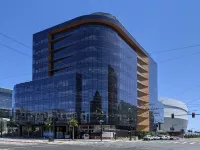
Uber Technologies Inc is a multinational transportation company headquartered in...
The Union of Soviet Socialist Republics USSR existed from to...

An apple is a widely cultivated round edible fruit originating...
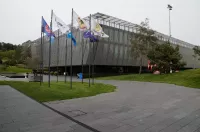
FIFA the F d ration Internationale de Football Association is...

A car also known as an automobile is a wheeled...
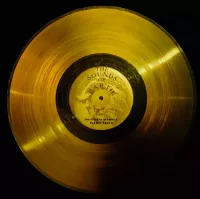
Music is a cultural universal involving the arrangement of sound...
Trending

32 minutes ago Chelsea Gray Defeats Paige Bueckers in Unrivaled Tournament; Bueckers Reacts to Loss

32 minutes ago Jalen Brunson Praises Knicks Fan Favorite After Trade Deadline Acquisitions

32 minutes ago Shapovalov Advances to Dallas Open Semifinals, Shelton Match Predicted.
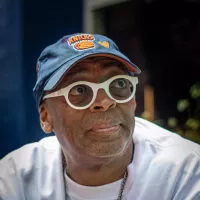
33 minutes ago Spike Lee celebrates 'School Daze' 38th anniversary with Atlanta reunion reflection.
Allisha Gray is an American professional basketball player currently playing for the Atlanta Dream in the WNBA She is most...

2 hours ago Devin Booker embraces Mexican roots, shines with Dillon Brooks, All-Star awaits.
Popular

Kid Rock born Robert James Ritchie is an American musician...

Pam Bondi is an American attorney lobbyist and politician currently...
The Winter Olympic Games a major international multi-sport event held...
Randall Adam Fine is an American politician a Republican who...

Barack Obama the th U S President - was the...

XXXTentacion born Jahseh Dwayne Ricardo Onfroy was a controversial yet...
